According to psychologist Daniel Kahneman, about 95% of the daily decisions we humans make are made unconsciously.
Knowing this, we can use a series of stimuli to guide potential customers to choose you over the competition.
What are Mental Triggers?
Mental sales triggers, also called mental triggers, are information stimuli received by the mind that influence people when making decisions.
Through certain stimuli, the brain delegates to the subconscious a series of automated choices, otherwise we would be mentally fatigued.
Understanding how they work will help us to understand how people’s minds work so that they choose our product through persuasion techniques.
These mental stimuli are widely used in digital marketing, since they can be presented, for example, in images that reflect a positive stimulus and that unconsciously influence the brain when choosing our product or service.
Actually, mental triggers are not something new, in fact their study and implementation in marketing is something that has been used since before the digital era.
For example, when you are walking through a supermarket and you see a sign indicating that a product is in ”limited units” is really activating that subconscious part of our brain using mental triggers to get our attention.
Once we have understood what they are, we need to understand how to use the mental triggers and what types there are 🧐
How to use mental triggers?
In the book Fast and Slow: Two Ways of Thinking, psychologist Daniel Kahneman (Nobel Prize in Economics) explains that we have two decision-making systems:
The first is fast, automatic and subconscious. It is influenced by emotions, certain biases and other different behaviors.
The second system is slower and more logical and is the one we use when making important decisions. It takes into account different scenarios and requires more work for our brain.
The first system can be stimulated to positively influence decisions that are slower and involve a logical process, so customers who are hesitating about whether or not to purchase our service, will opt for us if we do it correctly.
In the world of digital marketing mental triggers are not only focused on the purchase and sale of a product as this resource will be used to stimulate the decision making of the potential customer.
The possibility of being able to implement them in so many different formats such as audio, images or videos make it a fundamental tool in your marketing campaign.
If you are looking to attract new customers you can try offering a free trial period or a free gift item, such as offers in which a service gives you the first 30 days for free.
On the Internet this kind of campaigns are very recurrent, there are those that you don’t even have to put your credit card, so that the public thinks that they don’t lose anything for trying it but once they have started their trial period they are already using your product and are a potential customer.
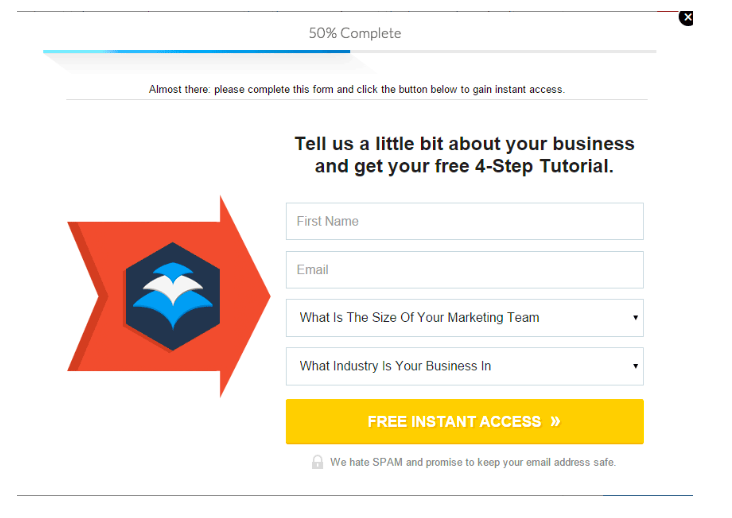
You can also take advantage of the opinions of your customers to promote your item since the fact of knowing that other people have used that service and have left a good opinion makes users feel more confident when purchasing it.
🚨Important:
To get the expected result it will be necessary to deliver something of value to your customer, otherwise it will look like you are manipulating people to buy your service or product, and this will damage your image in the long run.
8 Mental Triggers that you can use to sell more
There are countless mental triggers, this time I will describe eight that I consider the most important in the area of marketing.
Scarcity and exclusivity
The mental trigger of scarcity tries to create a feeling in the customer that the company has little stock or the service is limited, which will make the consumer want to take advantage of the opportunity.
If the customer is not fully motivated to purchase your service, they may be motivated to make a positive decision if they feel that there are not many units left or that they will not have another opportunity to do so.
Within online sales it is possible to use this mental trigger for sales on exclusive products that indicate that they have a particular value or that there are few units available.
The feeling that a product or service is going to end or that only a few people could have access to that item, generates a purchase stimulus, driven by the desire to get something special that the rest of the people do not have.
Read more: Copywriting Techniques
It can also be used when you launch a new and exclusive product and only the first customers can acquire it, for example when you receive an offer by mail saying ”offer valid only for the first 50 customers’‘.
It is very important to emphasize that even if you promote the feeling of scarcity, it is important to be honest with the customer.
If you say you are running a promotion because there are few units left, respect that once they are gone they will not continue to sell new units or else you will get the opposite result.
A particular day where this type of mental trigger is used a lot is the famous Black Friday. This special day is known for inaugurating the Christmas sales season and takes place on the last Friday of November.
Many companies attract the customer’s attention by launching limited-unit offers or offers that only last until the stock runs out⏰.
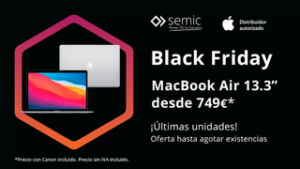
Example of a Black Friday offer
You have to keep in mind that trust is very important and if you say that your product is exclusive and limited, that is how it should be.
Novelty
Studies show that our brain when exposed to something new or a novelty item secretes dopamine which incites our brain to want to know more about that item or service.
The novelty sink transmits to the human brain the stimulus that something is going to be improved.
In marketing, the announcement of something new causes a greater impact as users will show greater interest as they are curious to know that ”something” is coming.
That is why big companies like Xiaomi or Apple are constantly releasing new products, and announcing more, because the public is interested in the simple fact that it is a new product on the market.
An example of this type of strategy that we have very recently is the launch of the latest Iphone 14🍏
With features similar to those of its previous model, Apple launches a new model that a large number of regular customers will buy thanks to the stimulus of novelty that it puts in our brains.
Urgency
This mental trigger is closely related to that of scarcity, as it seeks to encourage potential customers to make an immediate purchase.
However, unlike scarcity, which works with the quantity of products, urgency focuses on stimulating the purchase because of the time limit of the offer.
Some examples of the use of this trigger are: ”offer valid until Thursday” or ”if you buy it today before 22:00 you get 25%”.
The offer does not always have to be related to the price, it can also entail other advantages such as a future discount or a gift item.
This mental trigger has synergy with emojis and is widely used for both aggressive and flash campaigns.

Personally, I use emojis from this page to do so in my campaigns.
🔥Tip:
To search for emojis in a faster and more effective way:
In Windows, press Windows key + . (dot) and you get the Emoji keyboard (In Windows 11 you can even right click on the text and choose Emoji).
If you have a mac keyboard, you can use CTRL + CMD + Space
Authority
It is a disruptor that uses the claim of someone who is an expert in the field or an influencer to build trust with consumers.
Often potential customers are called because an influencer they feel they have full confidence in their opinion and judgment recommends a service or product.
With the rise of social networks and the Internet, more and more companies are becoming interested in successful influencers who, through a video on YouTube or a publication on Instagram, promote a service or product.
In Spain, a company that moves one of the largest advertising campaigns with influencers is Ron Barceló.
Once a year they hold a festival in which they invite about 400 influencers, both Instagram, YouTube or Twitch streamers.
Social networks are filled with a great Barceló campaign as many influencers are celebrating the festival and all the content they upload is advertising for the brand.

With the amount of masses they move, there are many potential customers to be found here 🧐.
Reciprocity
The normal thing for people is that when they receive something from someone, they have the impulse to return the favor; knowing this, how could you use this trigger to positively stimulate the sale to a customer?
The mental trigger of reciprocity is related to the company’s ability to establish good relationships with customers, in addition to encouraging new buying and selling services.
This trigger can be used from actions involving gifts, discount coupons and special messages on commemorative dates, such as a customer’s birthday or at Christmas time.
If you contribute to your customer’s happiness after a satisfied sale, you can encourage a future repurchase from the customer by sharing relevant content about the service or product purchased. This generates a feeling of gratitude, which encourages the customer to think of you when they need to buy again.
Security
The way you sell your product or service influences the customer’s perception. If you demonstrate confidence in what you are selling, you increase the chances that the customer will choose you. Therefore you have to make sure you give accurate and proven information that your product is better than the rest but with proven information, numbers and results.
The refund or return service helps to increase reliability in sales. People feel more attracted to make a purchase if they know that they can request a refund if the product or service is not to their liking.
Large companies like Amazon thrive on this trigger because they promote a policy where customer satisfaction is paramount and if the product does not please the customer a refund will be made in the simplest and quickest way for the customer 🚐.
Curiosity
When there is a gap between what we know and what we want to know, we take steps to close that gap. This is known as the Information Gap Theory.
Think of it as when you get bitten by a mosquito and need to scratch that area. Our curiosity not only inspires action unconsciously but also increases activity in the parts of the brain associated with pleasure.
Sparking curiosity will ensure that customers will open your emails, promote your content and buy your product because they want to fill that mystery between the teaser you give them and the answers they get once they become customers.
Social Proof
Humans are social creatures. We look to others to determine what actions we should take. Leverage testimonials, reviews and ratings from real people to support the benefits of your product.
Good reviews from other customers are a great starting point when it comes to getting the attention of potential customers.
Companies like Ebay or Wallapop feed off this mental trigger as you can sort sellers based on the rating left by other previous customers.

At the time of sale, when a customer is undecided, you can also use this heatsink to reinforce the decision to purchase our product. You are not selling it to them, you are selling it to other people who have already purchased the service and loved it.
Activate the mental triggers in selling.
The first thing you need to know to activate mental triggers for sales is that you don’t have to focus only on the sale.
You should use this resource to realistically show the customer how your product or service will improve your customer’s life.
If we were to put the mental triggers into steps, we could follow this series of steps.
- To begin with, show them the value of what is being negotiated.
- Awaken in the potential customer that sense of urgency and scarcity.
- Reinforce the idea that this is a unique and special opportunity. It’s now or never.
- Present social evidence (such as opinions from other customers) that justifies this acquisition.
- Remind the customer of the benefits they will get after the purchase.
Conclusion
Mental triggers are powerful tools of persuasion.
They can become the key to your business success when used ethically. It is important not to lie and be honest with your customers if you want them to function effectively.
Your intention should be to provide a positive experience without associating your brand with bad feelings. This way, you will be able to optimize strategies, bring the brand closer to your audience and increase your sales rate.
Recommended article: The 15 Greatest Growth Hacking Strategies

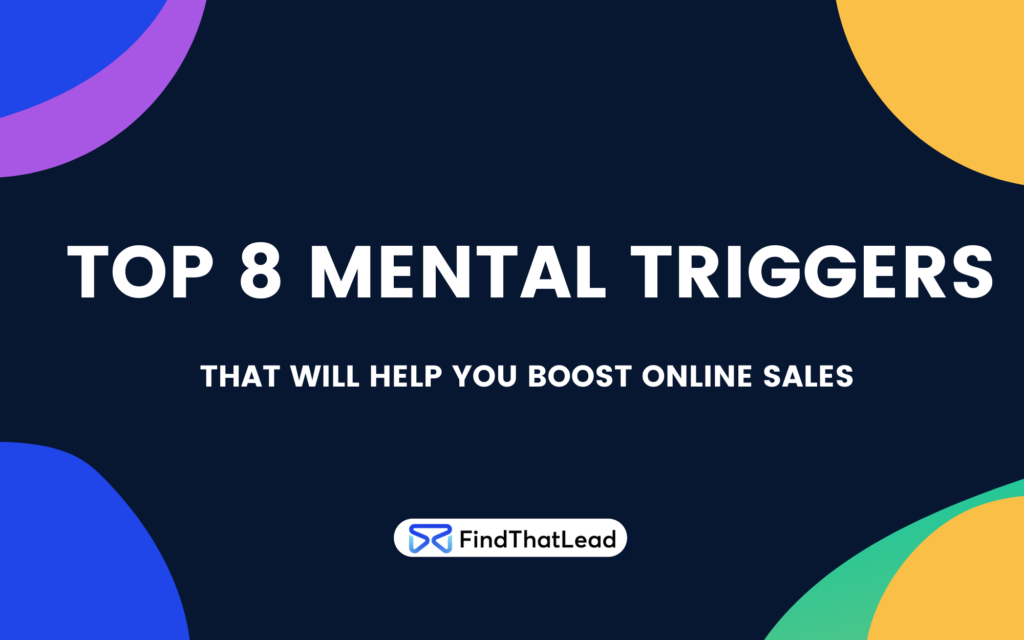

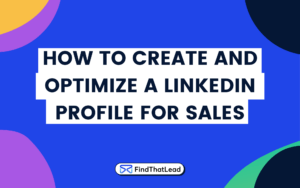
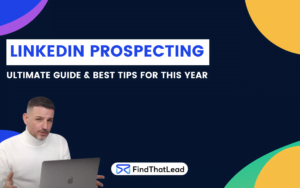
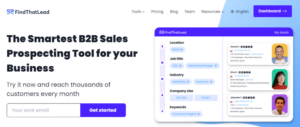

 BONUS:
BONUS: The Challenge: Join this free course and I guarantee that after 5 days you will have the necessary skills to start generating B2B clients Growth Hacking and Prospecting techniques.
The Challenge: Join this free course and I guarantee that after 5 days you will have the necessary skills to start generating B2B clients Growth Hacking and Prospecting techniques.